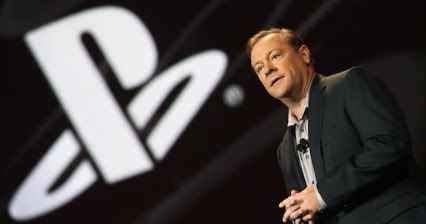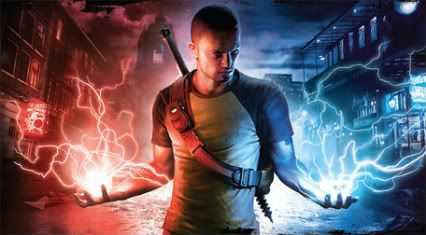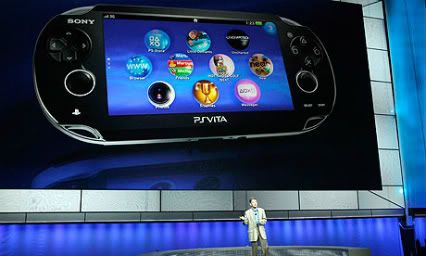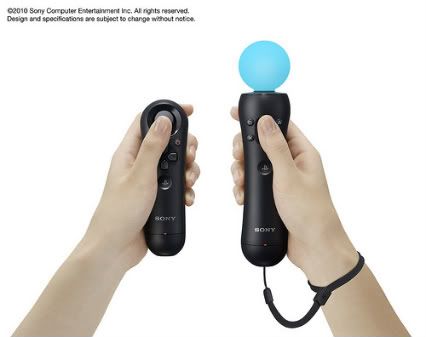
The disaster, of course, is the major PSN security breach. The triumph… is going to be difficult to evaluate until the end of the current fiscal year. What began as damage limitation could end up as a dramatic reversal of fortunes, due to a combination of smart decisions and pure luck.
First: the damage. When the PlayStation Network was taken down worldwide, that was bad enough; consumers were frustrated, and every minute meant untold dollars worth of lost revenue. A comment that hinted at an ‘outside intrusion’ was posted by an official at the PlayStation Blog, though this comment was swiftly removed. Eventually, it was admitted that Sony had taken PSN down themselves while they investigated what turned out to be the work of a hacker. Sony believed it was possible that user data including names, passwords, addresses, and credit card details had been stolen. Many amongst consumers and media alike were forthright in their anger. Why had so many days passed without this being announced?
Things only got worse for Sony. Dozens of accusations and rumours began circulating; some false, some true, some not fully resolved. It was claimed that user details had been stored as plain text; that they had been encrypted, but not sufficiently; that the hackers only had to get through a basic firewall to access all data; that the hackers had offered to sell the data back to Sony, who had refused; that the credit card details of two million users were up for sale; that Sony only discovered something was wrong when they noticed servers rebooting themselves; and more. Not only was the financial cost mounting up day by day, a huge dent had been kicked into the trust people placed in the PlayStation brand.
 Once Sony had admitted the breach however, they quickly adopted a new set of tactics. Flipping from giving little to no information to issuing regular updates, they announced that they had employed outside security companies (and perhaps outside PR companies) to help them address the issue. They regularly assured their customers that the continuing PSN outage was due to their desire to be entirely confident that the system was secure before returning online; and for similar reasons service restoration would be staggered, with online play being one of the first elements to return.
Once Sony had admitted the breach however, they quickly adopted a new set of tactics. Flipping from giving little to no information to issuing regular updates, they announced that they had employed outside security companies (and perhaps outside PR companies) to help them address the issue. They regularly assured their customers that the continuing PSN outage was due to their desire to be entirely confident that the system was secure before returning online; and for similar reasons service restoration would be staggered, with online play being one of the first elements to return.
They also announced a planned ‘Welcome Back’ package for customers who had registered PSN accounts active before the network went down. It is here, arguably, that the most important decisions have been made when it comes to potential financial recovery.
It was clear that Sony would have to offer some sort of compensation to its customers, and here it was. The most prominent feature of the package was, for many, the free games (for download); two from a selection of five for the PS3, and two from a selection of four for the PSP. Make no mistake, a lot of thought would have gone into deciding which games were offered. So how and why were these particular games decided upon?
Firstly, let’s look at PS3 game Infamous, which was one of the games on offer in major territories including North America and Europe. A two year old game with a heavily reduced RRP (it is now part of the PS3 ‘Platinum’ range), the profit to be had from retail sales is now significantly less than many other games in the PS3 catalogue. Most agree that it is a very good game however, and the sequel was released very shortly after the launch of the EU and NA ‘Welcome Back’ packages.
 By offering this game for free, Sony increase the user base with direct experience of the first game and, therefore, also increase interest in purchasing the (full price) sequel. The mere presence of the game in the ‘Welcome Back’ package increases visibility of the franchise for everybody. They’re clearly doing everything they can to promote Infamous 2; note the time they dedicated to it at E3 2011, despite the game’s release being mere hours away.
By offering this game for free, Sony increase the user base with direct experience of the first game and, therefore, also increase interest in purchasing the (full price) sequel. The mere presence of the game in the ‘Welcome Back’ package increases visibility of the franchise for everybody. They’re clearly doing everything they can to promote Infamous 2; note the time they dedicated to it at E3 2011, despite the game’s release being mere hours away.
The most far-reaching decision is the one to include LittleBigPlanet and LittleBigPlanet PSP in the package (again, for both NA and EU). The reasons above also apply here to an extent. A more recent, full price sequel available for purchase (though LittleBigPlanet 2 has now been discounted heavily by some retail outlets), minimum profit to be had from sales today, increased visibility of the franchise. The potential PR and financial benefits for Sony extend far beyond these issues however where LittleBigPlanet is concerned.
With the official unveiling of Sony’s Vita handheld at E3 came a detailed announcement of a Vita exclusive LittleBigPlanet game. This is a title that fans of the series old and new alike will of course show an interest in; and by default, they will show an interest in the new, full price format (due for release worldwide before the end of the year) as well. With plenty of time for interest to build, there’s a good chance that the Vita will have a larger installed user base by the start of 2012 than it otherwise would have; regardless of the fact that it seems LittleBigPlanet Vita itself will not be released until next year.
 Sony may be hoping for a similar knock-on sales effect to become visible much earlier. As previously outlined, it is likely that sales of LittleBigPlanet 2 will see an increase due to the presence of two other games in the franchise in the ‘Welcome Back’ packages of major territories. More owners of this game means more people likely to purchase the upcoming PlayStation Move package for it. Details of this package – particularly enticing for those who enjoy creating – can be found at the blog Rocket Cheetah (a name that stems from the first game in the series), run by MM-picked level creator ‘Chimpanzee’.
Sony may be hoping for a similar knock-on sales effect to become visible much earlier. As previously outlined, it is likely that sales of LittleBigPlanet 2 will see an increase due to the presence of two other games in the franchise in the ‘Welcome Back’ packages of major territories. More owners of this game means more people likely to purchase the upcoming PlayStation Move package for it. Details of this package – particularly enticing for those who enjoy creating – can be found at the blog Rocket Cheetah (a name that stems from the first game in the series), run by MM-picked level creator ‘Chimpanzee’.
While PlayStation Move has certainly not failed at retail, it has not been the runaway success that Sony were perhaps expecting. This Move pack will almost certainly encourage a significant number of people to purchase the peripheral. Not only will PlayStation Move be required for the relevant ‘Create’ features, and to play any official levels made specifically for it, it will also be required to play any user created levels that demand it. It’s important to note that LittleBigPlanet has a huge, thriving community; and a certain proportion are keen to buy anything and everything released for it.
In addition, people who buy PlayStation Move as a result of the upcoming LittleBigPlanet 2 add-on will suddenly find themselves able to consider purchasing a whole range of games that they had previously never given a second glance. The knock-on effect in terms of sales where LittleBigPlanet is concerned could be huge.
 Wouldn’t offering LittleBigPlanet spin-off Sackboy’s Prehistoric Moves instead have achieved the same effect? In short, no. With no ‘Create’ mode, no online play and no community levels, this game – while great fun for existing fans of the series – would not work as a good introduction to the LittleBigPlanet franchise. Its inclusion in the ‘Welcome Back’ package would also have worked against Sony. Firstly, because it is a very brief experience and very cheap to buy, it would not be seen as an overly generous gift. Secondly, as it requires PlayStation Move, it is not a game that everybody would be able to immediately play. It would be seen as a transparent ploy to sell the peripheral.
Wouldn’t offering LittleBigPlanet spin-off Sackboy’s Prehistoric Moves instead have achieved the same effect? In short, no. With no ‘Create’ mode, no online play and no community levels, this game – while great fun for existing fans of the series – would not work as a good introduction to the LittleBigPlanet franchise. Its inclusion in the ‘Welcome Back’ package would also have worked against Sony. Firstly, because it is a very brief experience and very cheap to buy, it would not be seen as an overly generous gift. Secondly, as it requires PlayStation Move, it is not a game that everybody would be able to immediately play. It would be seen as a transparent ploy to sell the peripheral.
As with LittleBigPlanet, a new entry in the WipEout series was unveiled for Sony’s Vita at E3; as was a new ModNation Racers title. This explains the presence of WipEout HD/Fury (PS3) and ModNation racers (PSP) in the EU and NA ‘Welcome Back’ packages. These last two games have been confirmed for the Japanese package as well (as has LittleBigPlanet PSP); but in Japan, Sony face a completely different – and significantly more challenging – environment…
In part two, coming next week: The battle for Japan; Why Sony should be thanking LulzSec; The likelihood of the PlayStation brand surviving a second PSN security breach; Plenty of time for Sony to snatch defeat from the jaws of victory.

















Great article! A really interesting post-mortem on the events. Looking forward to part 2. (PS. Thanks for the mention! )
)